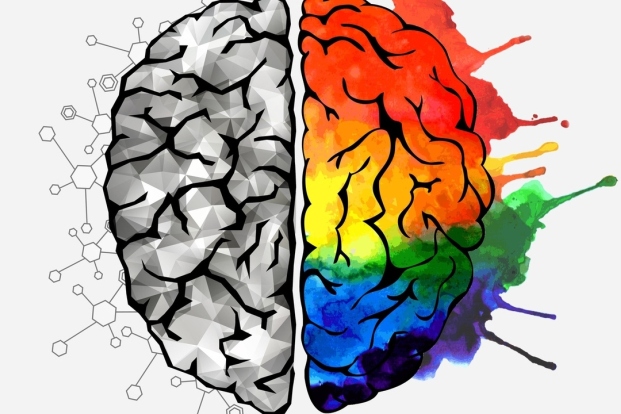Six most common types of Mental illness
in Psychiatry and Psychology
Apr 19, 2022
There are many different conditions that are recognized as psychological health disorders. Mental health issues are in fact one of the leading health ailments that mankind is facing. Depression and anxiety disorders are few mental health issues that are ignored, misdiagnosed and may compound and become chronic health issues. Mental Health is also one of the leading causes of disability in India.

Concept of the human brain
Common Mental Health Issues:
- Anxiety Disorders: Anxiety is a vague, uncomfortable feeling of fear, dread, or danger. Anxiety disorders are a group of psychiatric conditions that involve anxiety. Symptoms can vary in severity and length. According to the Anxiety Disorders Association of America, the five anxiety disorders are identified as Panic Disorder, Obsessive-Compulsive Disorder (OCD), Post-Traumatic Stress Disorder (PTSD), Generalized Anxiety Disorder (GAD), and Phobias (including Social Phobia, also called Social Anxiety Disorder).
- Mood Disorders: These disorders, also called affective disorders, involve persistent feelings of sadness or periods of feeling overly happy, or fluctuations from extreme happiness to extreme sadness. The most common mood disorders are depression, which afflicts 9.4 million Americans in any six-month period; mania; and bipolar disorder.
- Psychotic Disorders: Psychotic disorders involve distorted awareness and thinking. Two of the most common symptoms of psychotic disorders are hallucinations— the experience of images or sounds that are not real, such as hearing voices; and delusions—false beliefs that the ill person accepts as true, despite evidence to the contrary. Schizophrenia is an example of a psychotic disorder.
- Impulse Control and Addiction Disorders: People with impulse control disorders are unable to resist urges, or impulses, to perform acts that could be harmful to themselves or others.Pyromania (starting fires), kleptomania (stealing) and compulsive gambling are examples of impulse control disorders. Alcohol and drugs are common objects of addiction. Often, people with these disorders become so involved with the objects of their addiction that they begin to ignore responsibilities and relationships.
- Personality Disorders: People with personality disorders have extreme and inflexible personality traits that are distressing to the person and/or cause problems in work, school or social relationships. In addition, the person’s patterns of thinking and behavior significantly differ from the expectations of society and are so rigid that they interfere with the persons’ ability to function effectively and they don’t have the insight of their behavior.








